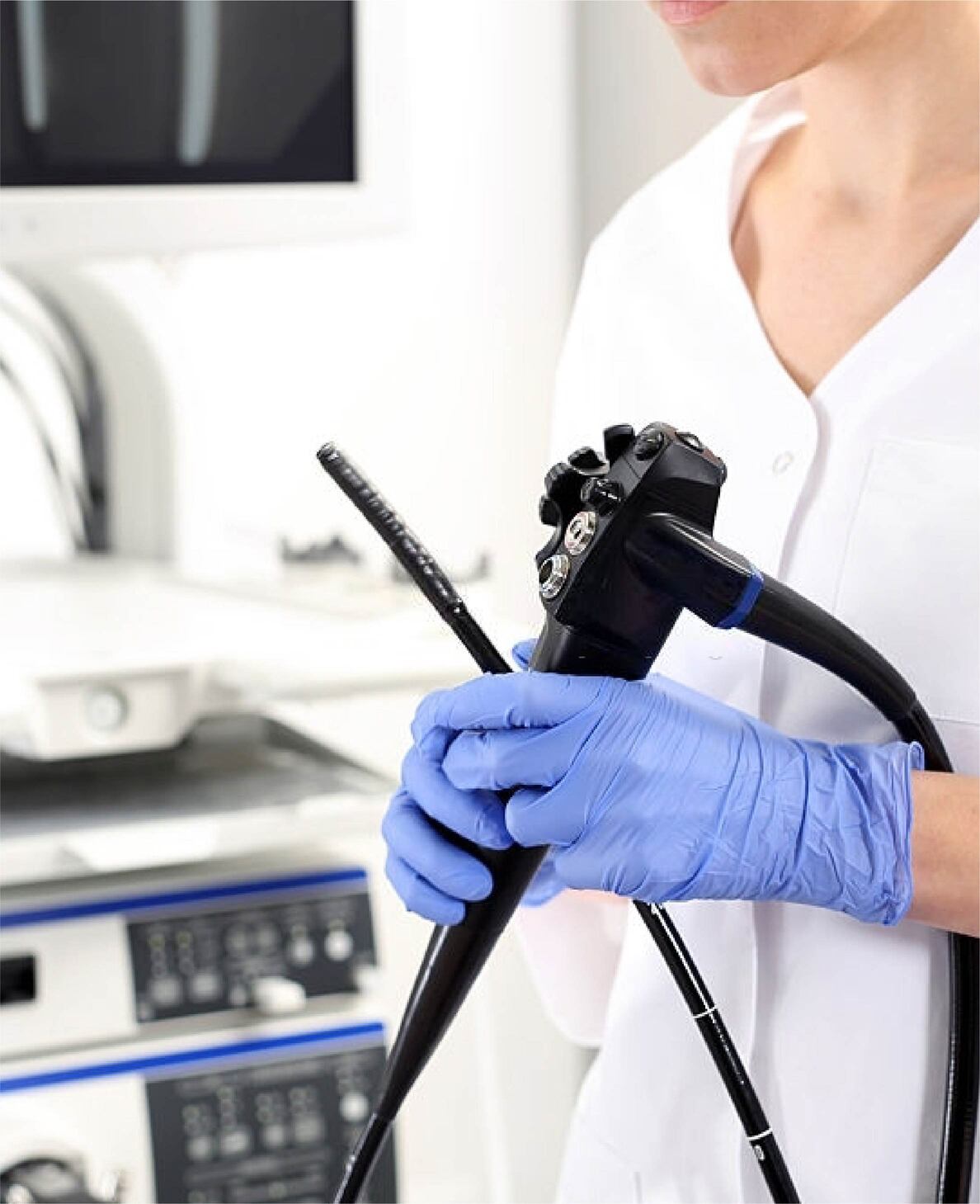Endoscopy
We are here for your care.
Endoscopy is a procedure in which special equipment is employed to visualize and operate on the internal organs and vessels of the body. It assists surgeons by allowing them to find out issues within the body without making larger cuts.
The equipment used to perform endoscopy is called an endoscope. It is a tube that’s flexible and attached with a camera that aids your doctor in visualization of the inner contents of the body. It is inserted in the body through an opening or cut in the body. A screen allows the doctor to see through an endoscope.
Endoscopy is used to aid your doctor find out the root cause of any unusual symptoms that you may be experiencing, take out a sample of tissue which is then sent to a laboratory for testing (biopsy), and help your doctor in seeing inside the body during a surgical procedure. Endoscopy can be ordered if you’re displaying signs or symptoms of inflammatory bowel disease (IBD), stomach ulcer, pancreatitis, infections, tumour, gallstones, chronic constipation, unexplained bleeding in digestive tract, hiatal hernia, gastroesophageal reflux disease (GERD), abnormal bleeding from the vagina, esophageal blockage, bloody urine, and other problems of the digestive tract.

Many endoscopy procedures require that you don’t eat anything for up to 12 hours before the procedure. Some clear liquids, such as water or juice, might be fine to consume for up to 2 hours before the procedure. Your doctor will make this clear to you. The doctor may prescribe laxatives or enemas to clear out your system, such as in procedures related to gastrointestinal tract and anus. You should inform your doctor about any medications that you’re taking, and you might need to pause taking them if they might affect bleeding. You should also inform the doctor whether you have any allergies.
Most types of endoscopies are done on an outpatient basis which means you can return to your home on the same day. At the end of the endoscopy procedure, your doctor will close wounds of the cut with stitches and bandage them. You might be asked to spend one to two hours in the hospital until the effects of the sedative go away. When you’re back home, you will have to spend the remaining day taking rest. Some types of endoscopies might cause you discomfort and it will take some time for you to get better from that discomfort and go back to doing your daily activities.

Prasad Hospital is a multi-speciality hospital located in Brahmpura, Muzaffarpur. Backed by a team of experienced doctors, Prasad Hospital is known for its dedication to provide affordable healthcare.
Address
Prasad Hospital, Brahmpura, Muzaffarpur, Bihar-842003
prasadhospitalmuzaffarpur@gmail.com
Phone
9570996625 / 9570996640
